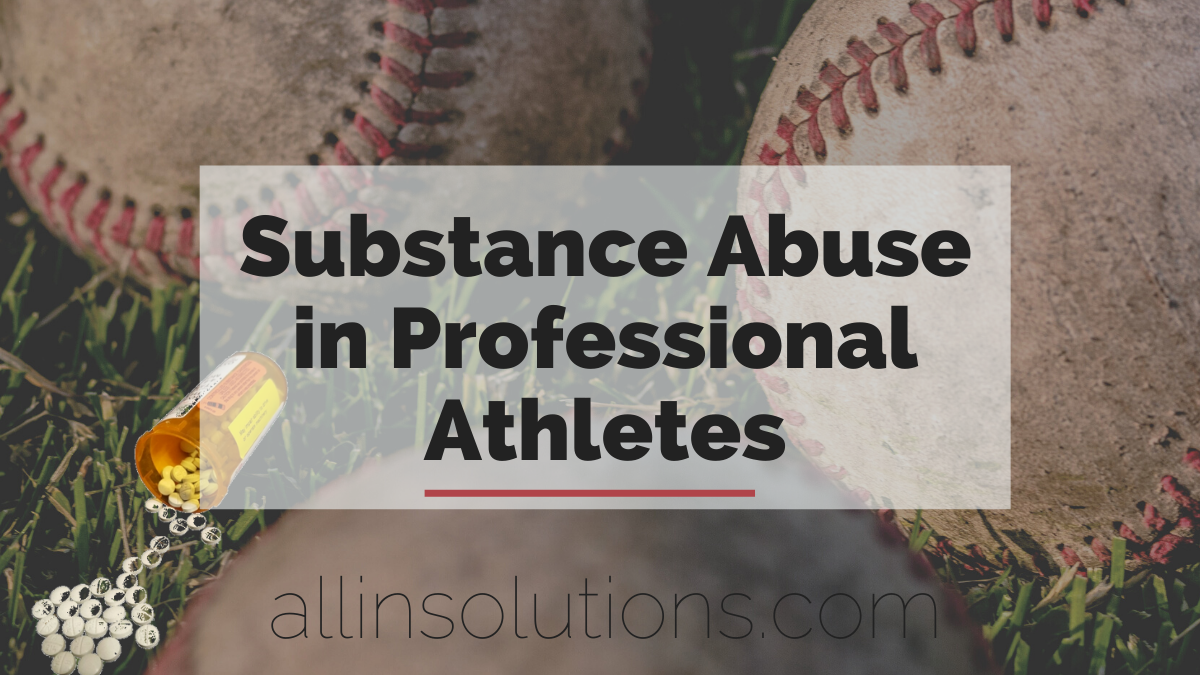Professional athletes are subject to immense pressure when they play on the court or field in front of thousands. Every year, many athletes use and misuse drugs in ways that could change their careers.
Professional athletes may seem to have a life of luxury and comfort, but substance abuse is a common problem in professional sports.
Why Do Athletes Use Drugs?
Athletes are subject to extreme pressure in their sport, apart from internal and external pressures. The National Institute of Health reported that two percent of elite athletes in all sports were found to have tested positive for drugs banned by the World-Anti Doping Agency. This excludes those who have evaded testing.
The desire to increase performance output leads to many professional athletes indulging in performance-enhancing drugs, or PEDs. Professional sports environment can encourage athletes to artificially rise to the top in order to impress coaches and scouts. Although PEDs can improve performance, they also pose a risk of injury and other health problems. All major American sports leagues prohibit the use of PEDs.
Because professional athletes are prone to injury, they are especially vulnerable because they abuse prescription painkillers. While broken, sprained, and strained bones, and ligaments can be healed quickly with medication and rehabilitation, continued abuse after injury has healed may lead to addiction. Athletes have easy access and can continue to get these medications due to the abundance of resources in professional athletic facilities. Non-steroidal anti-inflammatory drugs and cannabis can also be used to relieve pain. A decline in mental health is another side effect of professional sports’ immense pressure. Many athletes in professional sports are constantly pushing their mental and physical limits. Many return home from competition with anxiety or depression.
Professional sports often view mental illness as a sign that a person is weaker than it is a common human struggle. Athletes are more likely to conceal their mental illness and try out new substances to help. Injuries can also lead to despair and hopelessness. Athletes often use antidepressants and sleep pills, which can lead to their career ending if they aren’t careful.
These risks are not only for athletes, but also include the risk factors that could influence future drug use by non-athletes. Any person can be more vulnerable to substance abuse later on if they have had a troubled childhood. If a professional athlete has already suffered from any of these issues, they are more likely to get into drug-abuse in sport right away.
Athletes On the Road to Recovery
Professional athletes are subject to the same substance abuse treatment as anyone else. Athletes find it more difficult to stay sober after treatment. Research on sports-related brain injuries has increased in number. This is not just for athletes involved in contact sports.
CTE, a degenerative brain condition that affects almost 80% of National Football League (NFL), players, is known as chronic traumatic encephalopathy. CTE can cause brain damage such as memory loss, depression, or dementia. This can lead to players abusing substances. CTE is not curable. This makes it difficult for many athletes to get their lives back on track.
Rehabilitation and treatment for athletes who have suffered brain injuries or other unique factors is not as effective as for the rest of us. It is possible for athletes not to abuse substances again and there is constant research into a treatment for CTE.
Sources:
https://www.ncbi.nlm.nih.gov/pmc/articles/PMC4140700/
All In Solutions Counseling Center is a network of addiction treatment providers. We offer inpatient and outpatient addiction treatment programs that are individualized to meet each client’s needs. Our specialized programs include:
- Faith-based addiction treatment
- Medication assisted opiate treatment
- Art therapy addiction recovery
- Men’s rehab
- Women’s drug rehab
Our locations include:
Did you miss our previous article…
https://www.allinsolutions.com/can-adderall-damage-your-heart/





